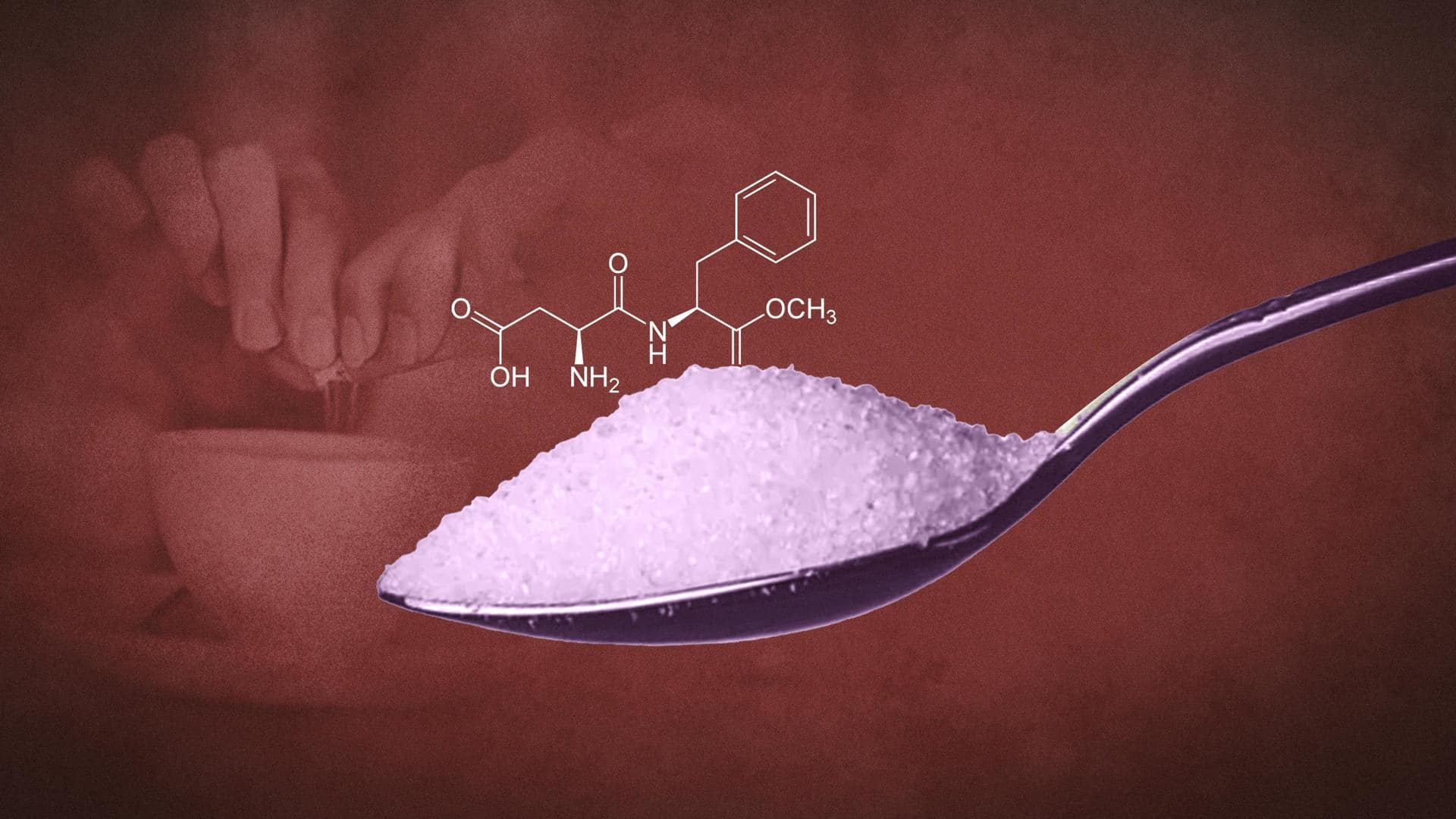
Aspartame: Popular sweetener used in soft drinks declared cancerous
What's the story
Aspartame, which is a world-famous artificial sweetener that is used in a host of drinks, has been under the World Health Organization (WHO)'s scrutiny over the last few days. According to an exclusive report by Reuters, the International Agency for Research on Cancer (IARC), WHO's cancer research arm, has classified aspartame as "a possible carcinogen," meaning it has the potential to cause cancer.
Twitter Post
Here's what the tweet said
Exclusive: Aspartame, one of the world's most common artificial sweeteners, is set to be declared a possible carcinogen next month by a leading global health body, pitting it against the food industry and regulators https://t.co/7Jv2XiJmAU pic.twitter.com/8bKuC53BMx
— Reuters (@Reuters) June 29, 2023
Investigation
Aspartame 'possibly carcinogenic to humans' listing expected in July
Aspartame will now be will be listed in July as "possibly carcinogenic to humans" after IARC's research. Currently, the authorities have not shared how much of a product with this artificial sweetener a person can safely consume. However, this, at the moment, is being reviewed by JECFA, the WHO committee on additives. JECFA shall announce its findings on July 14 this year.
Debate
Unhappy ISA says 'review of aspartame isn't scientifically comprehensive'
The International Sweeteners Association (ISA) isn't convinced by Aspartame being listed as a possible carcinogenic, stirring a debate. "IARC is not a food safety body and their review of aspartame is not scientifically comprehensive and is based heavily on widely discredited research," Frances Hunt-Wood, the secretary general of the International Sweeteners Association (ISA), told Reuters. She further added that their reviews "may mislead consumers."
Study
People have higher cancer risk with Aspartame: Study
In 2022, an observational study in France that featured a whopping 100,000 adults revealed that those who consumed large amounts of artificial sweeteners including Aspartame had a slightly higher cancer risk than those who did not. Additionally, a study from the Ramazzini Institute, Italy, had similar findings albeit in animal studies. It was found that cancers in mice and rats were linked to Aspartame.
Risk
Could be risky for liver disease patients: HHS
According to a report published by Healthline, the U.S. Department of Health and Human Services (HHS) has noted that certain individuals, particularly those with liver disease and during pregnancy, may be affected by Aspartame. This happens, "because their body cannot properly break down phenylalanine" read the report published on Healthline. Phenylalanine is an essential amino acid that one gets through food.
Information
Studies claim Aspartame causes cancer, diabetes, headaches, depression, allergies, etc.
Healthline reports that there have been many claims that Aspartame causes cancer, seizures, headaches, depression, allergies, skin problems, weight gain, ADHD, sweet cravings, type 2 diabetes, high blood pressure, heart diseases, lupus, chronic kidney diseases, Alzheimer's disease, and birth defects.
Products
Products that are rich in Aspartame
Aspartame is used in many sugar-free and diet-friendly food and beverages. These include Coca-Cola's diet sodas, Mars' Extra chewing gum, various fruit juices, sugar-free ice creams, light yogurts, sugar-free gums, ketchup, sugarless candies, salad dressings, no-sugar energy bars, etc. You can also check the ingredients list printed on the backside of other low-sugar, diet, and zero-sugar products that you may purchase.
alternatives
Here are some healthy alternatives to Aspartame
If you wish to avoid products rich in Aspartame, you can look out for alternatives to this artificial sugar. Buy products that instead have stevia, monk fruit, sugar alcohols, or allulose as they are immensely healthy and more natural than Aspartame. As for consumption, you can use these sweeteners in moderation or as directed for use.